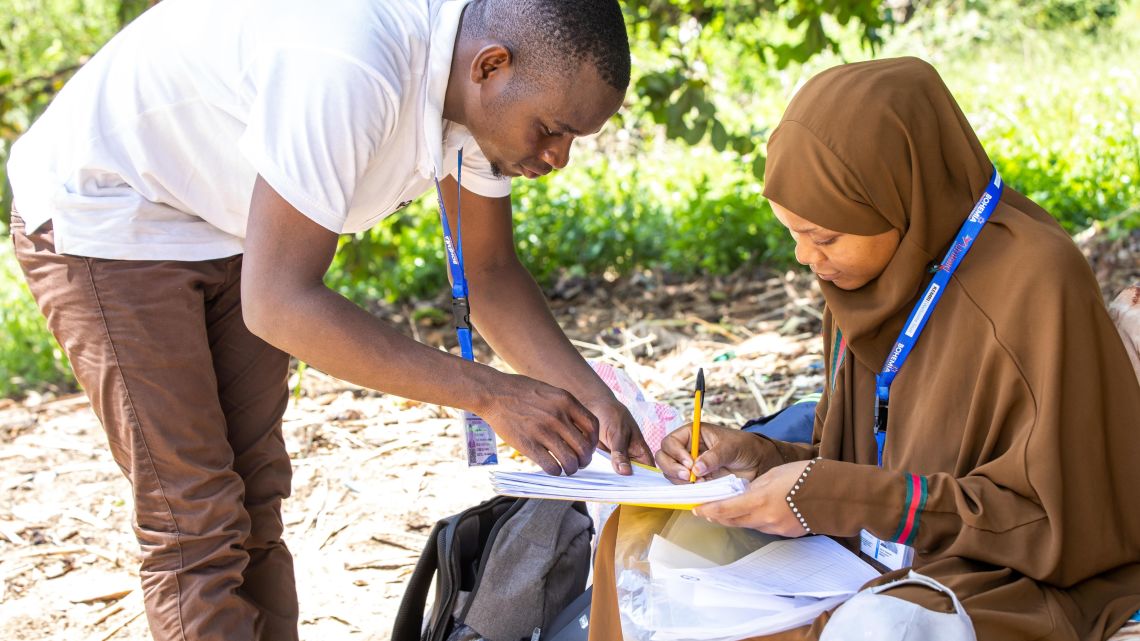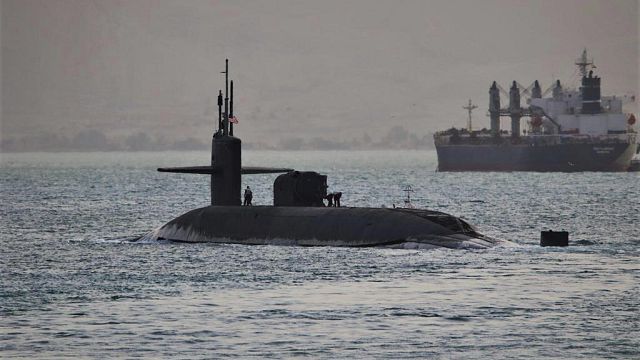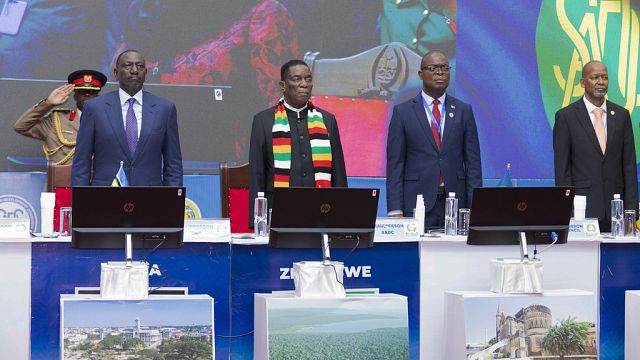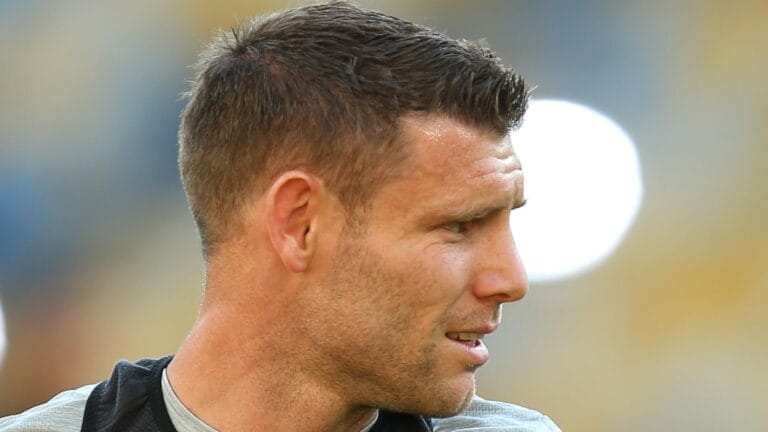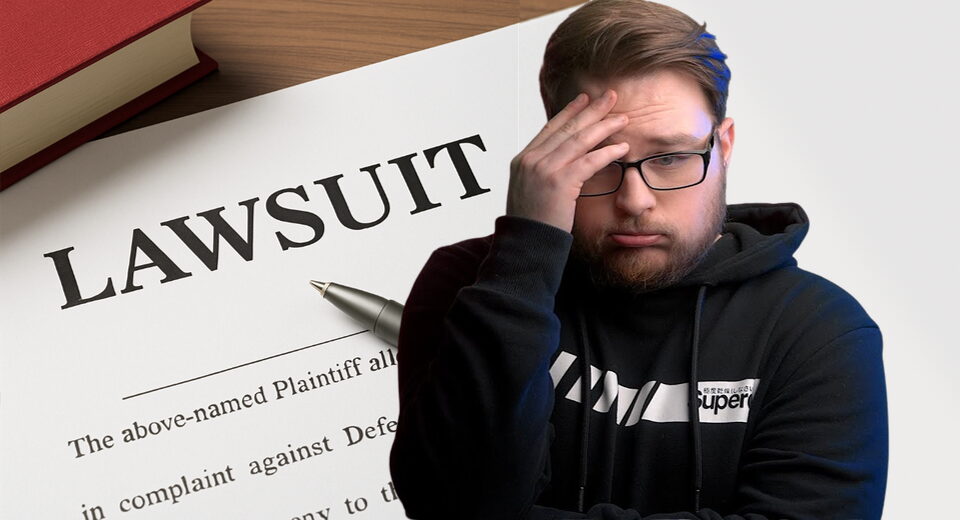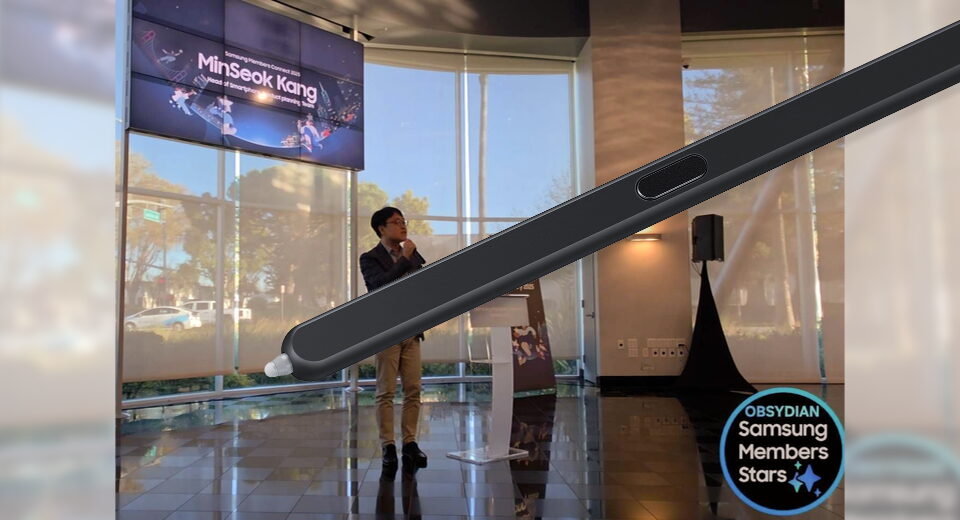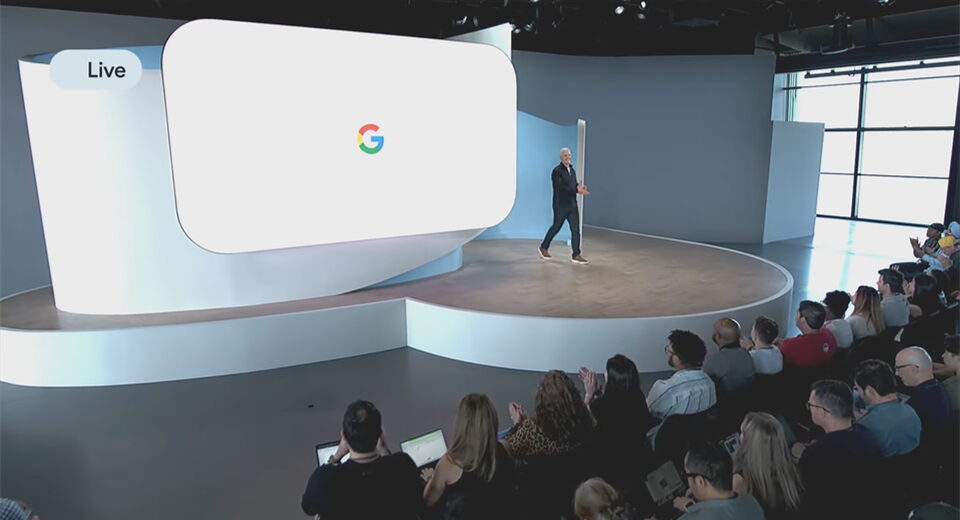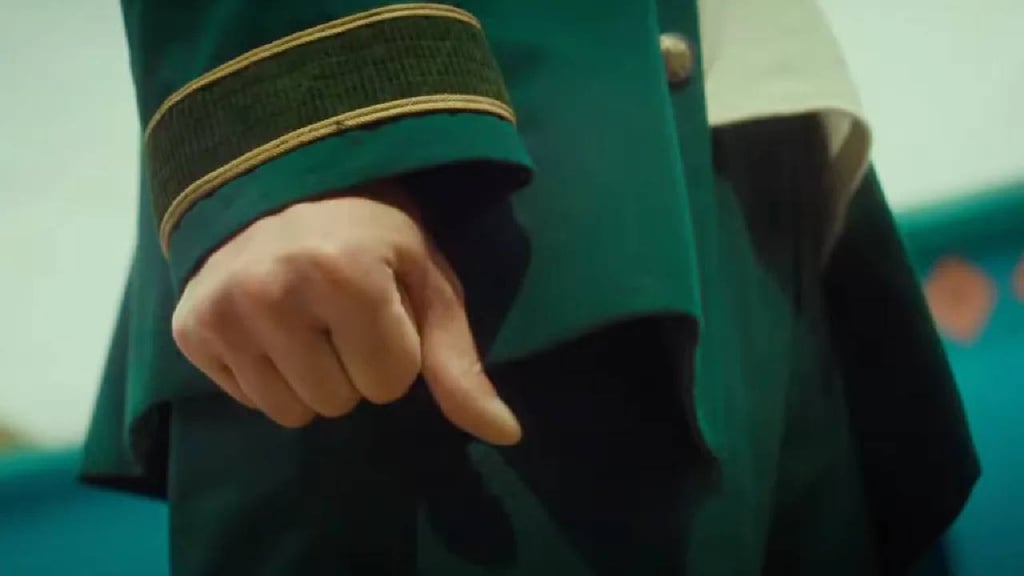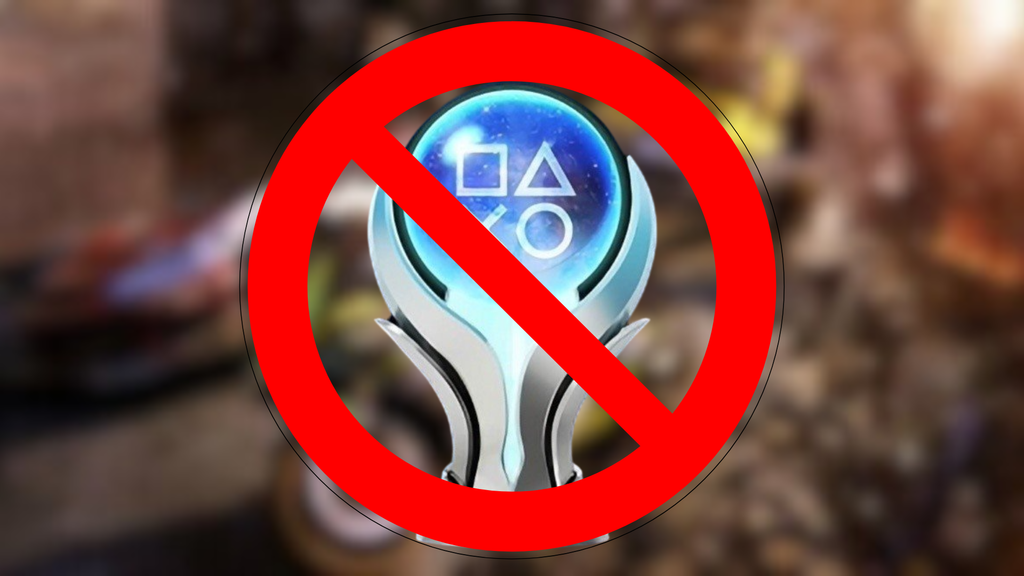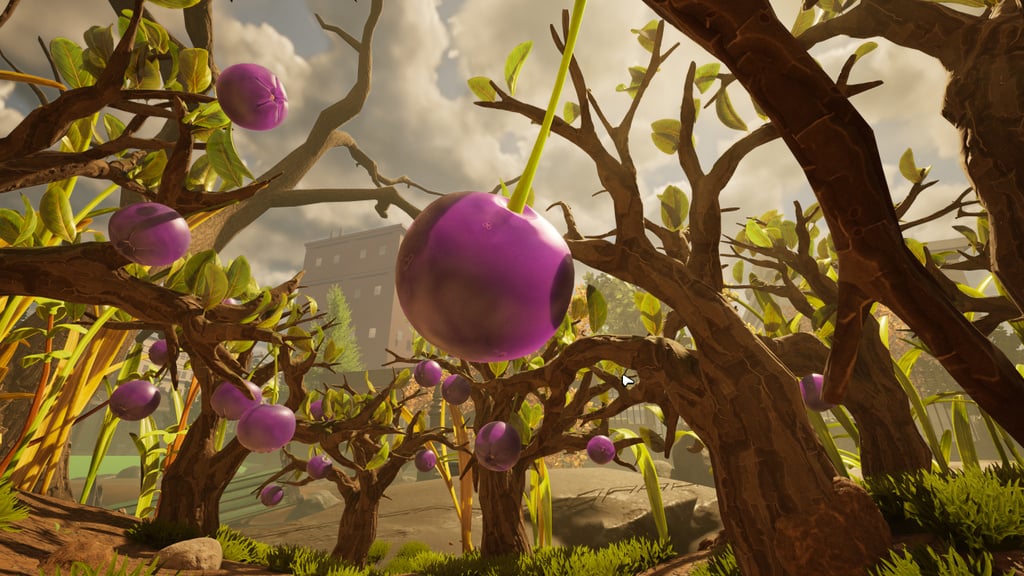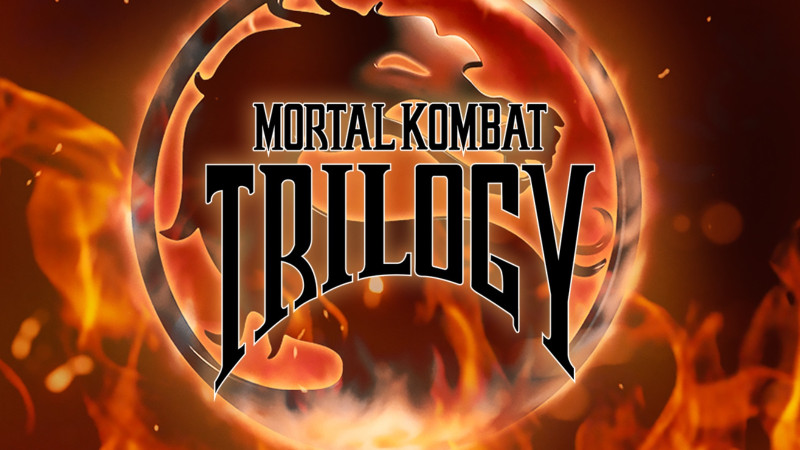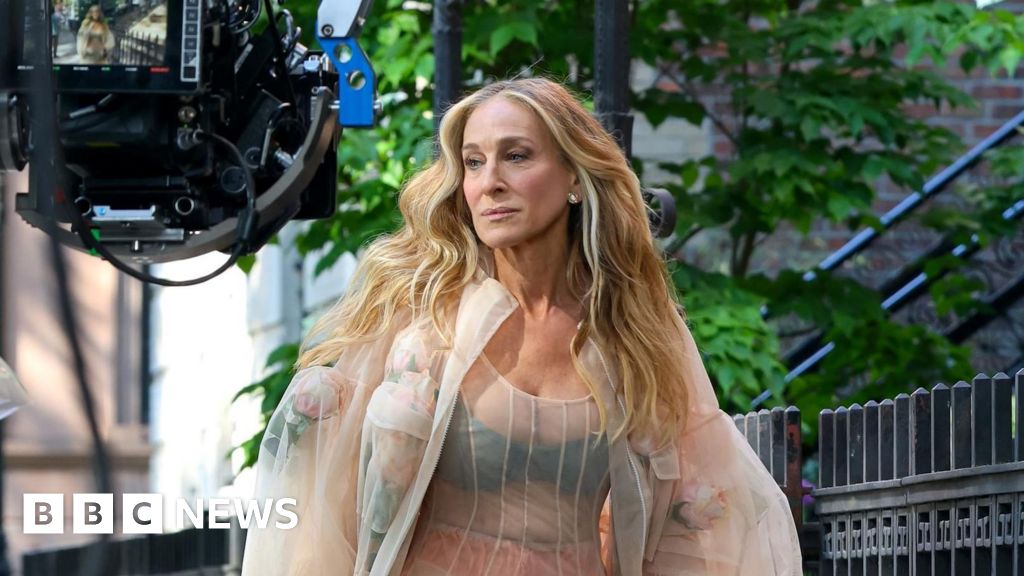Jeremy Bowen: Why some Palestinians I spoke to aren’t convinced by Starmer’s promise

Jeremy Bowen: 'Thank you, but it's too late': Why some Palestinians aren't convinced by Starmer's promise

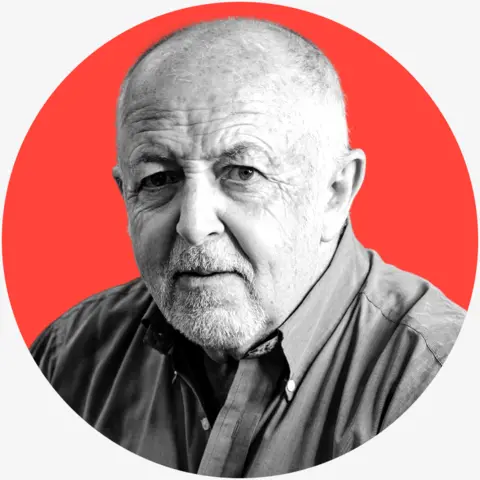 Jeremy BowenInternational editor
Jeremy BowenInternational editor
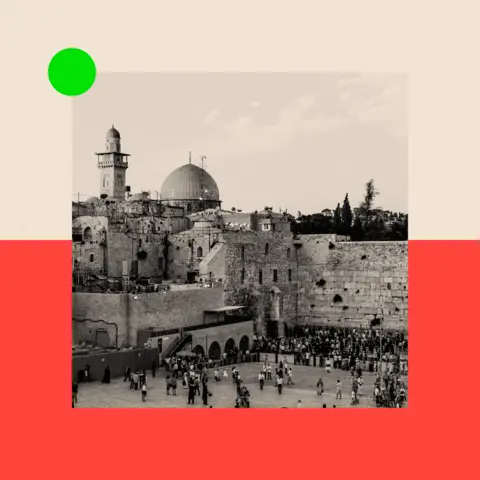 BBC
BBCOne of the major reasons why Britain's prime minister Sir Keir Starmer - following France and then in turn followed by Canada - has a plan to recognise a Palestinian state at the UN General Assembly in September is to turn the two-state solution into a real diplomatic plan again, instead of the empty slogan it has become since the Oslo peace process collapsed into bloodshed 25 years ago.
A day driving around the West Bank is a salutary reminder of how facts created by Israel to stop that happening have been concreted into the rocky hills and valleys the Palestinians want for a state.
The success of the huge national project that Israel started days after it captured the territory in the 1967 Middle East war can be seen in Jewish settlements that now are home to more than 700,000 Israelis.
Getting them there is a project that has taken almost 60 years, billions of dollars, and drawn condemnation from friends as well as enemies. It is a violation of international law for an occupier to settle its citizens on the land it has taken.
Last year, the International Court of Justice issued an advisory that said the entire occupation was illegal.
But the government of Benjamin Netanyahu is hungry for more settlements.
 AFP via Getty Images
AFP via Getty Images
At the end of May, the defence minister Israel Katz and the finance minister Bezalel Smotrich announced that 22 new settlements would be built in the West Bank.
Katz said the massive expansion, the biggest in decades, was making a "strategic move that prevents the establishment of a Palestinian state that would endanger Israel and serves as a buffer against our enemies" .
"This is a Zionist, security, and national response - and a clear decision on the future of the country," he added.
Next to Katz was the ultra-nationalist leader Bezalel Smotrich, who lives in a settlement in the West Bank and believes that the land was given to the Jews by God. He is finance minister but also is effectively the governor of the West Bank with sweeping powers over planning.
Smotrich called the settlement expansion a "once-in-a-generation decision" and declared: "Next step sovereignty!"
Everyone in Israel, and the Palestinians in the territories, know that when Smotrich and his allies say "sovereignty" they mean annexation.
Smotrich wants all the land for Jews and has openly discussed finding ways of removing Palestinians.

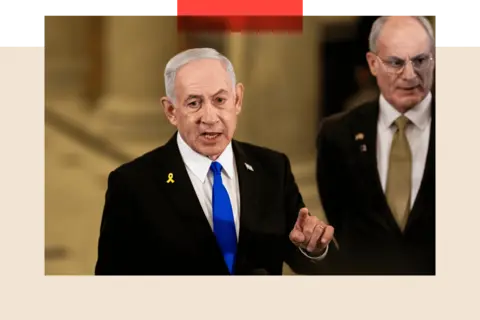 Getty Images
Getty Images'We were very, very scared'
On hilltop after hilltop in the West Bank are settlements at different stages of their development, from well-established small towns with mature gardens and schools, to outposts with handful of caravans and a militant population of young settlers who often mix religion with extreme Jewish nationalism, firearms and sometimes deadly aggression towards their Palestinian neighbours.
Statistics collected by the UN and peace campaigners show that violent settlers have increased attacks on their Palestinian neighbours since the 7 October attacks.
I went to see how that has affected Taybeh, an entirely Christian village of around 1,500 people.
It is a quiet place that seems to have many more houses than residents. After nearly six hard decades of Israeli occupation, more Taybeh people have been forced to emigrate than now live in the village.
Two nights before the visit, settlers entered the village when most people were in bed. They burned Kamal Tayea's car and tried unsuccessfully to get into his new house, part of a pleasant development overlooking acres of olive groves. They daubed the walls with graffiti in Hebrew sprayed with red paint.
Kamal, a middle-aged man reassessing whether his decision to move his family to the edge of the village was wise, is installing a network of security cameras.
"We were very, very scared," Kamal said. "I have children and an old mum. Our lives were threatened, and it was terrifying."
I asked him whether Britain's plan to recognise Palestine would make his life any easier.
"I don't think so. It's a big step to have a superpower like Britain support us, but on the ground, it does not change much. Israel is not compliant with any international resolutions or laws.
"It does not listen to any other country in the whole world."

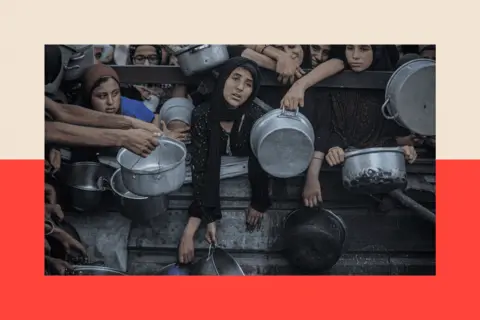 Getty Images
Getty Images'Our roots are here. We can't move'
During the next night, Jewish settlers raided neighbouring Palestinian communities, burning cars and spraying graffiti. It is more than just vandalism.
The settlers want the Palestinians out and, in some places in the occupied territories, have succeeded, forcing Palestinians in remote villages out of their farms and stealing their livestock.
The Greek Orthodox priest, 74-year-old David Khoury was born in Taybeh. In his church he told me that settlers who have threatened him and other residents are often armed.
"Yes, they have guns… they'll use them if we argue with them. They want us out, they want us to leave."
The old priest was defiant.
"We are here, since Jesus Christ, 2,000 years. Our roots are here. We can't move. We will not move, even if we die here, we will not move from here… Palestine is inside our blood, how we can live without our blood?"
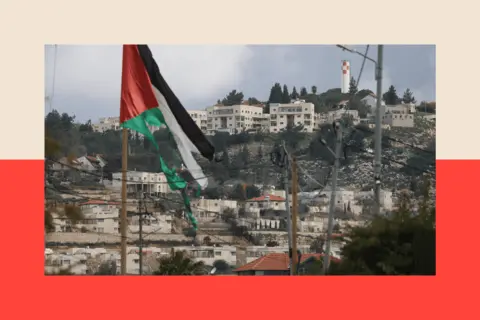 AFP via Getty Images
AFP via Getty Images
'If you really seek two states, recognise [both]'
It was not many miles to Ramallah, the de facto Palestinian capital of the West Bank, but I wasn't able to get there in person. Israel's checkpoints can make driving back to Jerusalem slow and difficult, so I reached Husam Zomlot via Zoom. He is the head of the Palestinian delegation to the United Kingdom, effectively their ambassador in London. He is back home for the summer and was delighted by Britain's plan to recognise Palestine.
"It is a sign that the UK and with it, the rest of the international community are really serious about the two-state solution. We are no longer in the business of the lip service that has lost us three decades. Actually, if you really seek two states, recognise the two states."
"We see the recognition as the starting gun to a sprint towards implementing and establishing the state of Palestine and fulfilling the legitimate rights of the Palestinian people."
Zomlot was jubilant. It was, he said, a first step, and Britain's decision would make a real difference.
History is one of the powerful drivers of this conflict. Britain, he added, was atoning at last for the wrongs it had done Palestinians when it was the imperial power here between 1917 and 1948.
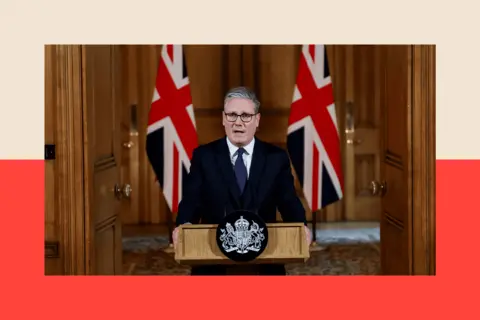 Getty Images
Getty Images
He was referring to the promises made in a short, typewritten letter, dated 2 November 1917, signed by the foreign secretary Arthur Balfour and addressed to Lord Rothschild, a leader of Britain's Jewish community. It was, the letter said, "a declaration of sympathy with Jewish Zionist aspirations".
Britain would "view with favour the establishment in Palestine of a national home for the Jewish people".
It was followed by another promise: "Nothing shall be done which may prejudice the civil and religious rights of existing non-Jewish communities in Palestine."
He meant the majority, Palestinian Arabs, though he didn't name them, a point that, 108 years later, still rankles Zomlot
At the UN in New York this week, Britain's foreign secretary David Lammy said the UK could be proud to have helped lay Israel's foundations after 1917. But breaking the promise to Palestinians in the Balfour Declaration had, he said, caused "a historical injustice which continues to unfold".
At the Knesset, Israel's parliament, Simcha Rothman, an ultra-nationalist MP from the National Religious party also had Britain's imperial past in the Middle East on his mind. The British and French had tried to fix borders before, he said, when they took the Middle East from the dying Ottoman Empire during the First World War. Britain couldn't play the imperial power anymore.
Just like Benjamin Netanyahu and Bezalel Smotrich, his party leader, Rothman said the plan to recognise Palestine rewarded Hamas terrorism. He rejected Starmer's offer to postpone recognition if Israel, among other conditions, agreed to a full ceasefire in Gaza and a revival of the two-state solution.
"He is threatening the state of Israel with punishment and thinks that's the way to bring peace to the Middle East. He is not in a position to punish us, and it definitely will not bring peace."
"And it's against justice, history, religion, culture... he's giving a huge reward for Yahya Sinwar [the Hamas leader who led the 7 October attacks and was killed by Israeli forces in Gaza last year].
"Wherever he is in hell today, he sees what Keir Starmer says - and says, 'good partner'."
Back in Taybeh, I had asked a group of leading local citizens who were drinking coffee with the mayor in his office what they thought of the UK's recognition plan.
One of them, a local businessman, said: "Thank you Britain. But it's too late."

 Getty Images
Getty ImagesTop image: Getty Images
BBC InDepth is the home on the website and app for the best analysis, with fresh perspectives that challenge assumptions and deep reporting on the biggest issues of the day. And we showcase thought-provoking content from across BBC Sounds and iPlayer too. You can send us your feedback on the InDepth section by clicking on the button below.
What's Your Reaction?
 Like
0
Like
0
 Dislike
0
Dislike
0
 Love
0
Love
0
 Funny
0
Funny
0
 Angry
0
Angry
0
 Sad
0
Sad
0
 Wow
0
Wow
0

